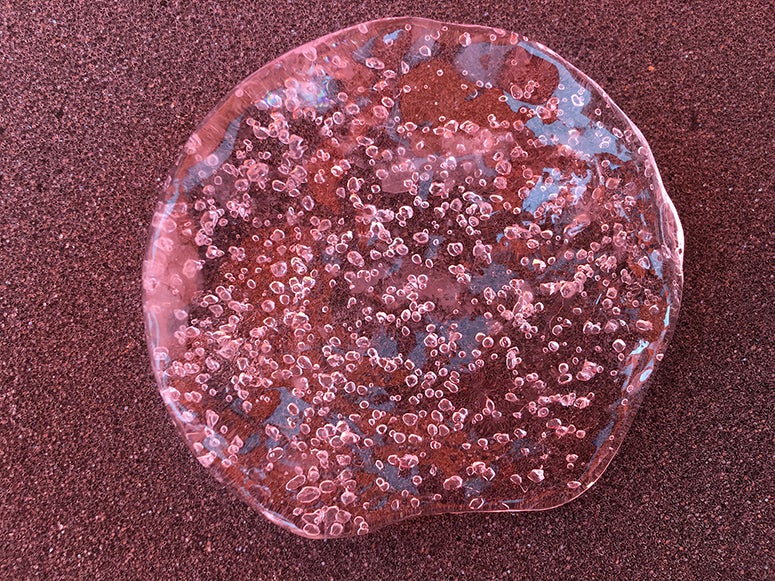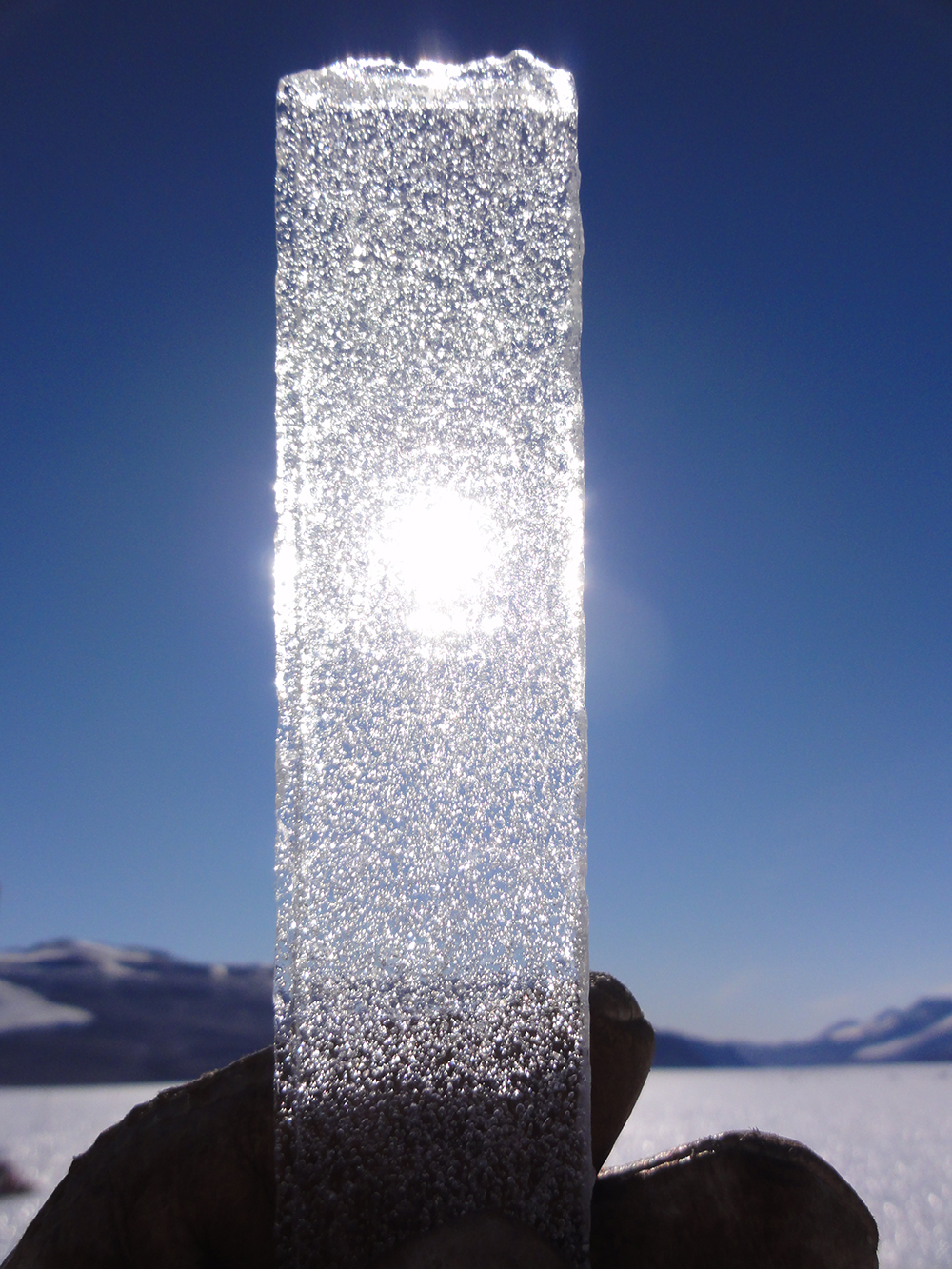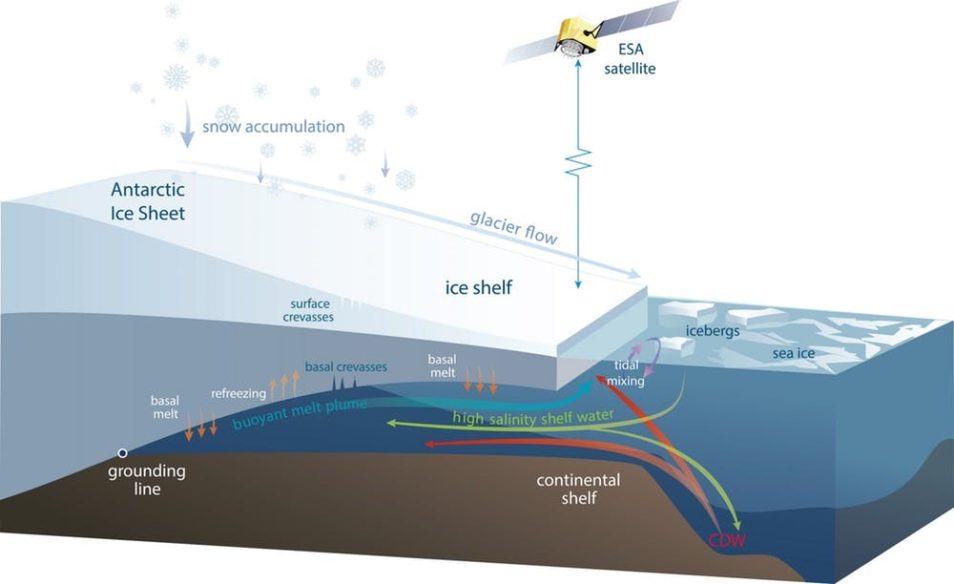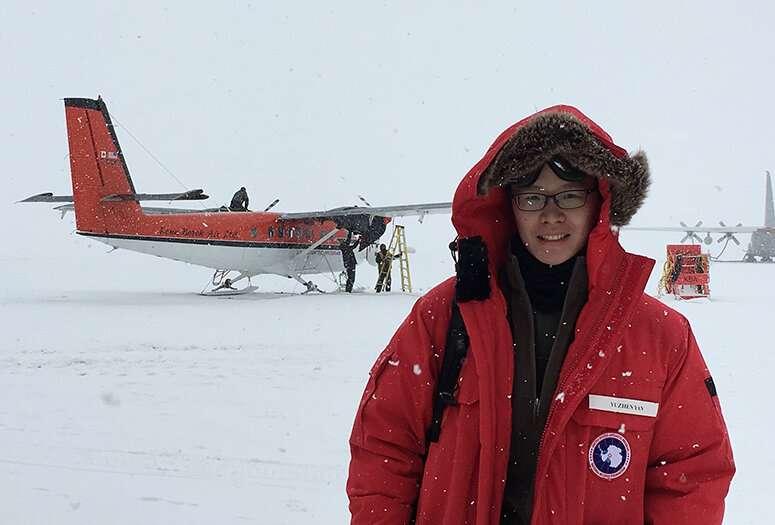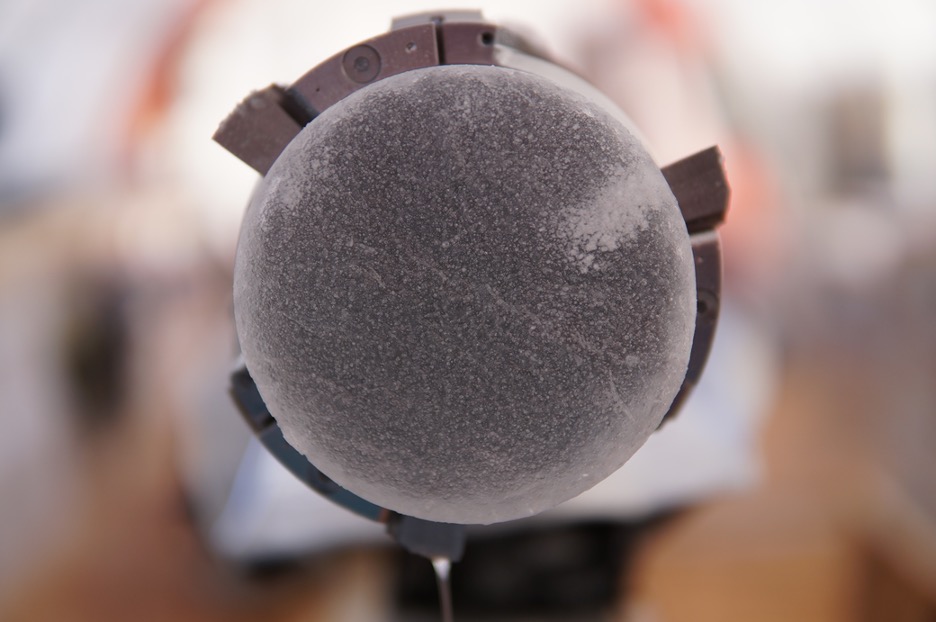Air Bubbles In The Antarctic Ice Sheet Show That
Air Bubbles In The Antarctic Ice Sheet Show That - Web drilling ice cores is a technique climate scientists use to collect samples of trace gases such as carbon dioxide, methane and carbon monoxide that have been trapped in air bubbles in the layers of polar ice. Dating back roughly 1.5 million years, these tiny doses of our ancient atmosphere contain. Web scientists can study earth’s climate as far back as 800,000 years by drilling core samples from deep underneath the ice sheets of greenland and antarctica. Web in the science advances study, yan, higgins and colleagues from oregon state university, the university of maine and the university of california, san diego, analyzed bubbles in older ice cores to. Web ancient air bubbles trapped in the antarctic ice sheet have now revealed a somewhat different picture.
Dating back roughly 1.5 million years, these tiny doses of our ancient atmosphere contain. Web in the science advances study, yan, higgins and colleagues from oregon state university, the university of maine and the university of california, san diego, analyzed bubbles in older ice cores to. Web scientists can study earth’s climate as far back as 800,000 years by drilling core samples from deep underneath the ice sheets of greenland and antarctica. Web drilling ice cores is a technique climate scientists use to collect samples of trace gases such as carbon dioxide, methane and carbon monoxide that have been trapped in air bubbles in the layers of polar ice. Web ancient air bubbles trapped in the antarctic ice sheet have now revealed a somewhat different picture.
Web drilling ice cores is a technique climate scientists use to collect samples of trace gases such as carbon dioxide, methane and carbon monoxide that have been trapped in air bubbles in the layers of polar ice. Web scientists can study earth’s climate as far back as 800,000 years by drilling core samples from deep underneath the ice sheets of greenland and antarctica. Web ancient air bubbles trapped in the antarctic ice sheet have now revealed a somewhat different picture. Dating back roughly 1.5 million years, these tiny doses of our ancient atmosphere contain. Web in the science advances study, yan, higgins and colleagues from oregon state university, the university of maine and the university of california, san diego, analyzed bubbles in older ice cores to.
Air bubbles in Antarctic ice point to cause of oxygen decline Mirage News
Web ancient air bubbles trapped in the antarctic ice sheet have now revealed a somewhat different picture. Web in the science advances study, yan, higgins and colleagues from oregon state university, the university of maine and the university of california, san diego, analyzed bubbles in older ice cores to. Web scientists can study earth’s climate as far back as 800,000.
Ancient air, trapped in ice Cosmos Magazine
Web ancient air bubbles trapped in the antarctic ice sheet have now revealed a somewhat different picture. Web scientists can study earth’s climate as far back as 800,000 years by drilling core samples from deep underneath the ice sheets of greenland and antarctica. Dating back roughly 1.5 million years, these tiny doses of our ancient atmosphere contain. Web in the.
How floating ice walls are protecting the Antarctic ice sheet CSIROscope
Web in the science advances study, yan, higgins and colleagues from oregon state university, the university of maine and the university of california, san diego, analyzed bubbles in older ice cores to. Web drilling ice cores is a technique climate scientists use to collect samples of trace gases such as carbon dioxide, methane and carbon monoxide that have been trapped.
A sliver of Antarctic ice revealing the myriad enclosed tiny bubbles of
Web in the science advances study, yan, higgins and colleagues from oregon state university, the university of maine and the university of california, san diego, analyzed bubbles in older ice cores to. Web scientists can study earth’s climate as far back as 800,000 years by drilling core samples from deep underneath the ice sheets of greenland and antarctica. Web ancient.
Antarctic Ice Sheet Is Melting Way Faster Than Expected, Scientists
Web in the science advances study, yan, higgins and colleagues from oregon state university, the university of maine and the university of california, san diego, analyzed bubbles in older ice cores to. Web ancient air bubbles trapped in the antarctic ice sheet have now revealed a somewhat different picture. Web drilling ice cores is a technique climate scientists use to.
Air bubbles in Antarctic ice point to a cause of oxygen decline
Web scientists can study earth’s climate as far back as 800,000 years by drilling core samples from deep underneath the ice sheets of greenland and antarctica. Web drilling ice cores is a technique climate scientists use to collect samples of trace gases such as carbon dioxide, methane and carbon monoxide that have been trapped in air bubbles in the layers.
Climate Model Predicts West Antarctic Ice Sheet Could Melt Rapidly
Dating back roughly 1.5 million years, these tiny doses of our ancient atmosphere contain. Web drilling ice cores is a technique climate scientists use to collect samples of trace gases such as carbon dioxide, methane and carbon monoxide that have been trapped in air bubbles in the layers of polar ice. Web in the science advances study, yan, higgins and.
Message in a frozen bubble Antarctic ice reveals abrupt rises in
Web ancient air bubbles trapped in the antarctic ice sheet have now revealed a somewhat different picture. Web scientists can study earth’s climate as far back as 800,000 years by drilling core samples from deep underneath the ice sheets of greenland and antarctica. Web in the science advances study, yan, higgins and colleagues from oregon state university, the university of.
Frozen air reveals humancaused emissions of fossil methane much higher
Web ancient air bubbles trapped in the antarctic ice sheet have now revealed a somewhat different picture. Web scientists can study earth’s climate as far back as 800,000 years by drilling core samples from deep underneath the ice sheets of greenland and antarctica. Web in the science advances study, yan, higgins and colleagues from oregon state university, the university of.
Antarctic frozen air bubbles Antarctic, Bubbles, Photography
Web ancient air bubbles trapped in the antarctic ice sheet have now revealed a somewhat different picture. Dating back roughly 1.5 million years, these tiny doses of our ancient atmosphere contain. Web drilling ice cores is a technique climate scientists use to collect samples of trace gases such as carbon dioxide, methane and carbon monoxide that have been trapped in.
Dating Back Roughly 1.5 Million Years, These Tiny Doses Of Our Ancient Atmosphere Contain.
Web ancient air bubbles trapped in the antarctic ice sheet have now revealed a somewhat different picture. Web drilling ice cores is a technique climate scientists use to collect samples of trace gases such as carbon dioxide, methane and carbon monoxide that have been trapped in air bubbles in the layers of polar ice. Web in the science advances study, yan, higgins and colleagues from oregon state university, the university of maine and the university of california, san diego, analyzed bubbles in older ice cores to. Web scientists can study earth’s climate as far back as 800,000 years by drilling core samples from deep underneath the ice sheets of greenland and antarctica.
